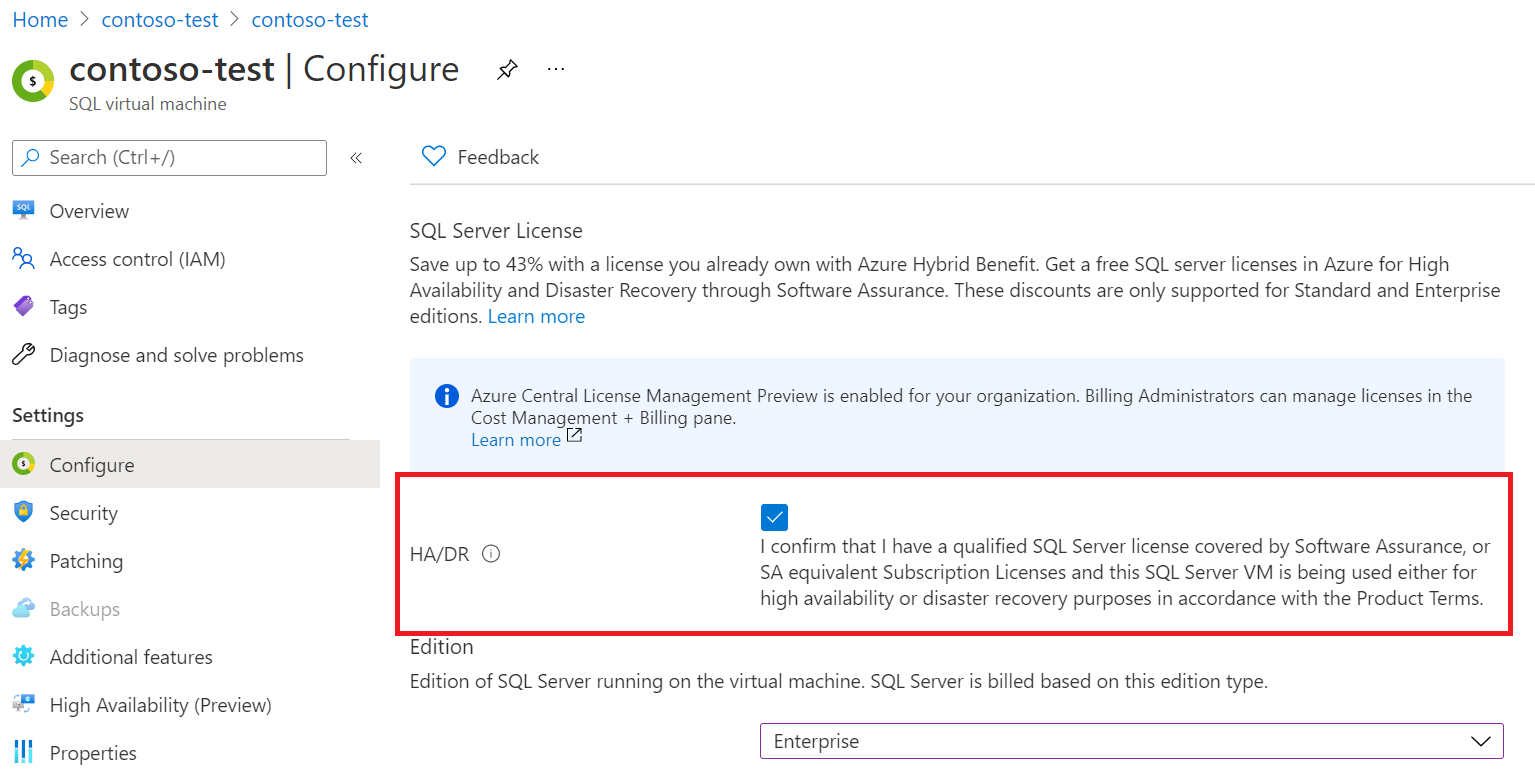Note
Access to this page requires authorization. You can try signing in or changing directories.
Access to this page requires authorization. You can try changing directories.
One of the benefits of Software Assurance (SA) is that it allows Azure customers to install and run passive SQL Server instances for disaster recovery in anticipation of a failover event. Scope-level management of Azure Hybrid Benefit supports the SQL Server HADR benefit by ensuring that the qualified disaster recovery replicas don't consume assigned SQL Server licenses. As a result, you don't have to manage the replicas separately.
HADR benefit selection
To use the HADR benefit, select HADR using the Configure pane of the SQL Virtual Machine resource, as shown in the following image.
If the HADR property is selected, then licenses centrally assigned to a scope aren't used to discount the SQL software cost of that resource. Instead, the pay-as-you-go meter automatically switches to a $0 HADR meter. This method ensures that the assigned SQL licenses are only used for the resources that require licensing. You don't need to inflate the SQL license assignments to account for the HADR benefits. The following diagram illustrates this concept.
Prices shown in the following image are for example purposes only.
Note
HADR option reflects the specific role of this SQL Server instance in the Always On availability group. Selecting it is the responsibility of the service owner or DBA and requires at least a SQL Server Contributor role. This task is unrelated to scope-level license assignments.
Related content
- Review the Centrally managed Azure Hybrid Benefit FAQ.
- Learn about how discounts are applied at What is centrally managed Azure Hybrid Benefit?
- Learn about how to transition from existing Azure Hybrid Benefit experience.
